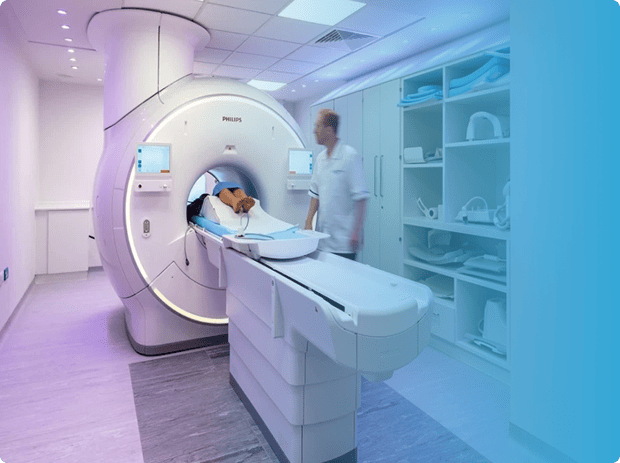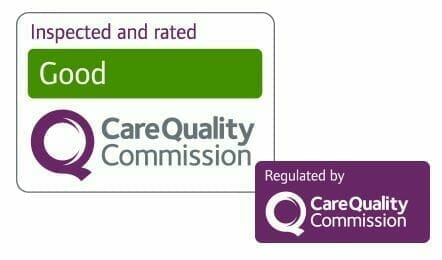How long can abdominal pain last?

Experiencing abdominal discomfort is a frequent occurrence that most individuals encounter at some stage in their life. A variety of factors, ranging from minor issues to serious medical conditions, can cause it. Abdomen pain can be acute, chronic or progressive. This article explains what causes stomach pain, how long it can last, and when to seek medical help.
Causes
A variety of factors can cause abdominal pain.
- Gastrointestinal issues: This includes indigestion, gas, bloating, constipation, diarrhea, and food poisoning.
- Menstrual cramps: Women may experience abdomen pain during menstruation.
- Urinary tract infections: This can cause pain in the lower abdomen.
- Kidney stones: This can cause severe pain in the lower back and abdomen.
- Appendicitis: This is a medical emergency that requires immediate medical attention.
- Gallstones: This can cause pain in the upper right abdomen.
- Inflammatory bowel diseases: Crohn's disease and ulcerative colitis can cause abdominal pain, diarrhea, and other symptoms.
- Cancer: Abdominal pain can be a symptom of cancer in the stomach, pancreas, liver or colon.
- Infection: Infections such as viral gastroenteritis, bacterial gastroenteritis, and pelvic inflammatory disease (PID) can cause abdominal pain.
- Urinary tract infections (UTIs), kidney stones, and bladder infections can cause abdominal pain.
- Reproductive system issues such as ovarian cysts, ectopic pregnancy, and endometriosis can cause abdominal pain.
- Other causes of abdominal pain include appendicitis, pancreatitis, gallstones, and hernias.
Symptoms of Abdominal Pain
The symptoms of abdominal pain vary depending on the underlying cause. Some common symptoms include:
- Nausea
- Vomiting
- Diarrhea
- Constipation
- Fever
- Fatigue
- Loss of appetite
- Bloating
- Abdominal tenderness
Types of abdominal pain
Acute pain
Acute abdominal pain refers to sudden and severe pain that starts suddenly and lasts for a short time. A medical emergency, such as appendicitis, a ruptured spleen, or a perforated ulcer, often causes this type of pain.
Less serious conditions, such as indigestion or food poisoning, can also cause acute abdominal pain. In these cases, the pain usually goes away within a few hours or days.
Chronic pain
Chronic abdominal pain refers to pain that lasts for more than three months. A variety of factors, including, can cause this type of pain.
- Irritable Bowel Syndrome (IBS): This prevalent disorder leads to stomach discomfort, swelling, and alterations in bowel movements.
- Endometriosis: This is a condition where the tissue that lines the uterus grows outside, causing pain and other symptoms.
- Ulcers: Sores in the stomach or small intestine that cause ongoing pain.
- Inflammatory bowel disease: This includes Crohn's disease and ulcerative colitis.
- Chronic pancreatitis: This is a condition where the pancreas becomes inflamed, causing chronic abdominal pain.
Progressive pain
Progressive abdominal pain refers to pain that gets worse over time. A variety of factors, including, can cause this type of pain.
- Cancer: Abdominal pain can be a symptom of stomach, pancreatic, liver, or colon cancer.
- Infections: This includes infections such as hepatitis, HIV, or tuberculosis.
- Autoimmune disorders: This includes conditions like lupus or rheumatoid arthritis.
When to Contact a Medical Professional
If you are experiencing persistent stomach pain accompanied by a fever, vomiting, or diarrhea, it is advisable to seek medical attention. If you have a history of stomach pain, IBS, or Crohn's disease, it's important to monitor your symptoms. If your symptoms worsen, seek medical assistance.
Conclusion
A variety of factors, ranging from minor issues to serious medical conditions, can cause abdominal pain. It can be acute, chronic or progressive. It is important to identify the cause of abdominal pain to determine the appropriate treatment. If you experience severe or persistent abdomen pain, seek medical attention immediately.

Patient Friendly MRI Scan at UME Health
Our open MRI machine provides a more spacious and less enclosed environment, which can ease any feelings of anxiety or discomfort during the scan. We also allow a friend or family member to sit in the room with you during the scan, if that would make you more comfortable.
UME Group LLP. Registration number: OC333533. A Company Registered in England and Wales. Registered office: 17 Harley Street, London, W1G 9QH ©Copyright 2024 - UME Group LLP. Built and maintained by Dezign41 London


